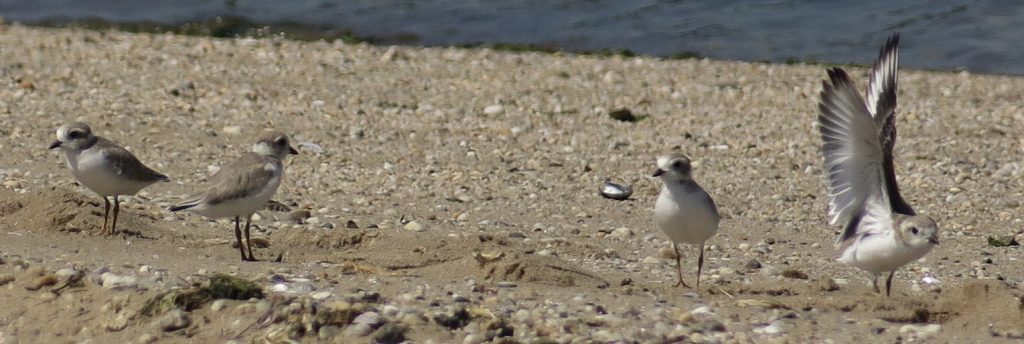
Conservation – it’s more than just birds. Birds are the “canary in the coal mine” for our environment. When bird species are in trouble and we look for the reason, it tells us about a much bigger picture. And birds are in trouble for a variety of reasons. The big three are; habitat loss from agriculture, deforestation and urbanization, collision with buildings, and feral and free roaming domestic cats. But there are often more subtle problems, like the loss of a food resource via competition from another, perhaps invasive species, or humans. Climate change may have moved the hatch of an insect species up to a week before the migrant birds arrive, having used up their final resources, and not finding the expected feast. Climate change means mountain top birds are finding less and less of their preferred habitat. And we have to remember that “our” migratory birds are someone else’s birds during the winter, so these are issues in both North and South America. Some of the battles that Audubon has fought were to remove lead from fishing and hunting gear that previously poisoned thousands of birds a year. To establish preserves for breeding birds. Taking strong positions to supporting legislation to protect migratory birds, for clean air and water, and preserving wetlands. Collecting important scientific data via use of citizens and scientists to back up the need for protection. Establishing Important Bird Areas (IBA), areas identified as critical habitat for many species or species at risk. Long Island has wealth of these areas, 27 of New York’s 132 IBAs http://www.audubon.org/important-bird-areas/state/new-york . Locally we have worked on issues of land protection and preservation, state and local legislation, protecting threatened species, Cats Indoors, https://abcbirds.org/program/cats-indoors/ and promoting native plant gardens.
What can you do? Join Audubon Action Alerts – a way to contact your elected officials on issues.
https://action.audubon.org/signup/sign-today or http://www.audubon.org/takeaction
http://ny.audubon.org/audubon-action-network
Reduce Your Carbon Footprint; 10 quick tips and links to more ideas
- Change your light bulbs to LED
- Unplug your gadgets
- Take public transit or carpool, buy an energy efficient vehicle, ride a bike, walk
- Compost, get a rain barrel, plant a rain garden, plant a tree, use mulch
- Filter your own water instead of buying bottled
- Adjust your curtains and (digital 7 day) thermostat
- Buy local food
- Reduce, reuse, recycle
- Don’t print it out if you can store it electronically
- Chose energy-efficient kitchen appliances
http://cotap.org/reduce-carbon-footprint/
http://www.globalstewards.org/reduce-carbon-footprint.htm
Conserve Water, we live on top of our only source of water, the Long Island sole source aquifer:
http://www.liwater.org/uploads/3/8/5/9/38599771/blue_water_card.pdf
http://eartheasy.com/live_water_saving.htm
You can explore many ways to help, either adding your voice to legislative issues from your computer or phone, or in the field.
National Audubon Conservation here: http://www.audubon.org/conservation
Audubon NY: http://ny.audubon.org/conservation
American Bird Conservancy; https://abcbirds.org/
Cornell Lab of Ornithology: http://www.birds.cornell.edu/page.aspx?pid=1666
NY State Programs: http://www.dec.ny.gov/animals/30935.html